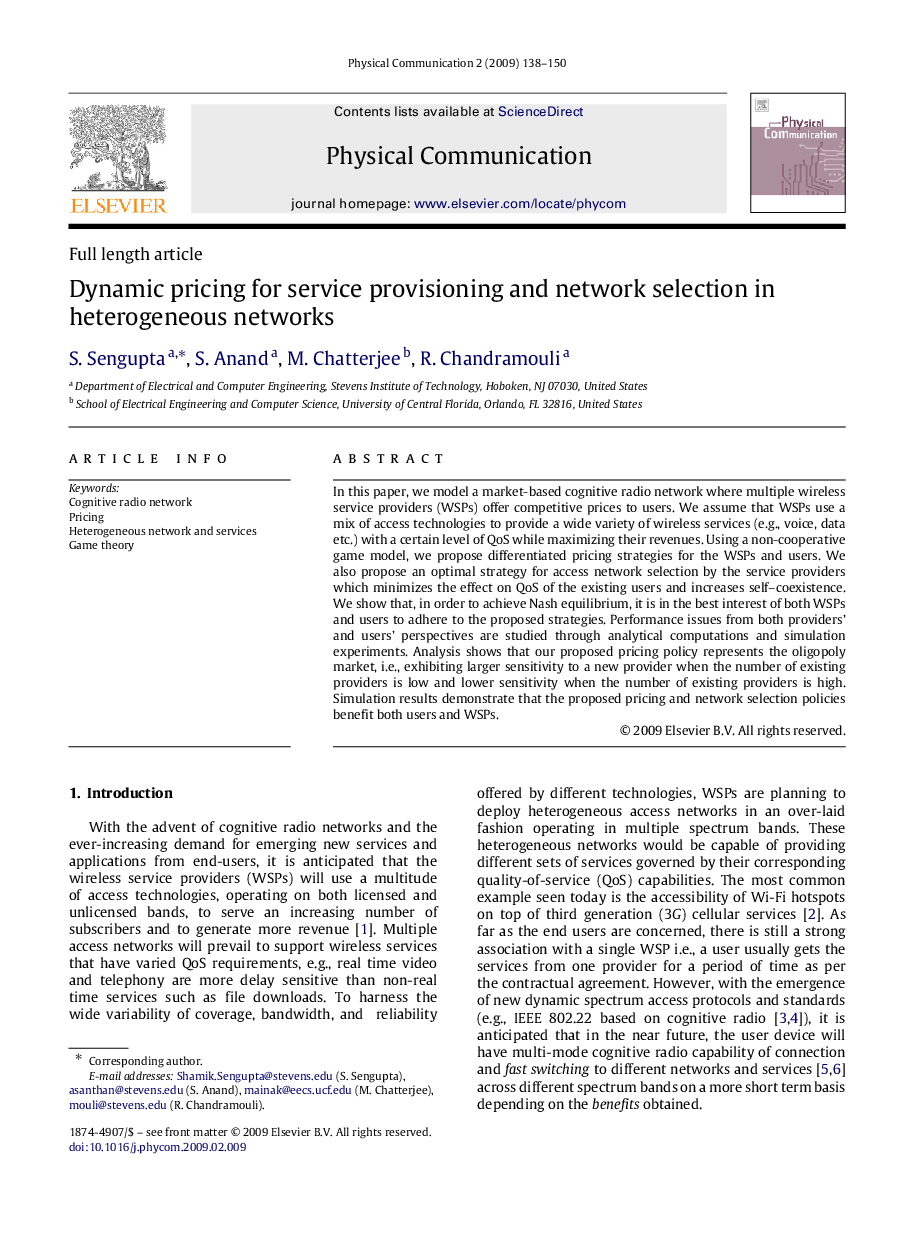| Article ID | Journal | Published Year | Pages | File Type |
|---|---|---|---|---|
| 465949 | Physical Communication | 2009 | 13 Pages |
In this paper, we model a market-based cognitive radio network where multiple wireless service providers (WSPs) offer competitive prices to users. We assume that WSPs use a mix of access technologies to provide a wide variety of wireless services (e.g., voice, data etc.) with a certain level of QoS while maximizing their revenues. Using a non-cooperative game model, we propose differentiated pricing strategies for the WSPs and users. We also propose an optimal strategy for access network selection by the service providers which minimizes the effect on QoS of the existing users and increases self–coexistence. We show that, in order to achieve Nash equilibrium, it is in the best interest of both WSPs and users to adhere to the proposed strategies. Performance issues from both providers’ and users’ perspectives are studied through analytical computations and simulation experiments. Analysis shows that our proposed pricing policy represents the oligopoly market, i.e., exhibiting larger sensitivity to a new provider when the number of existing providers is low and lower sensitivity when the number of existing providers is high. Simulation results demonstrate that the proposed pricing and network selection policies benefit both users and WSPs.
